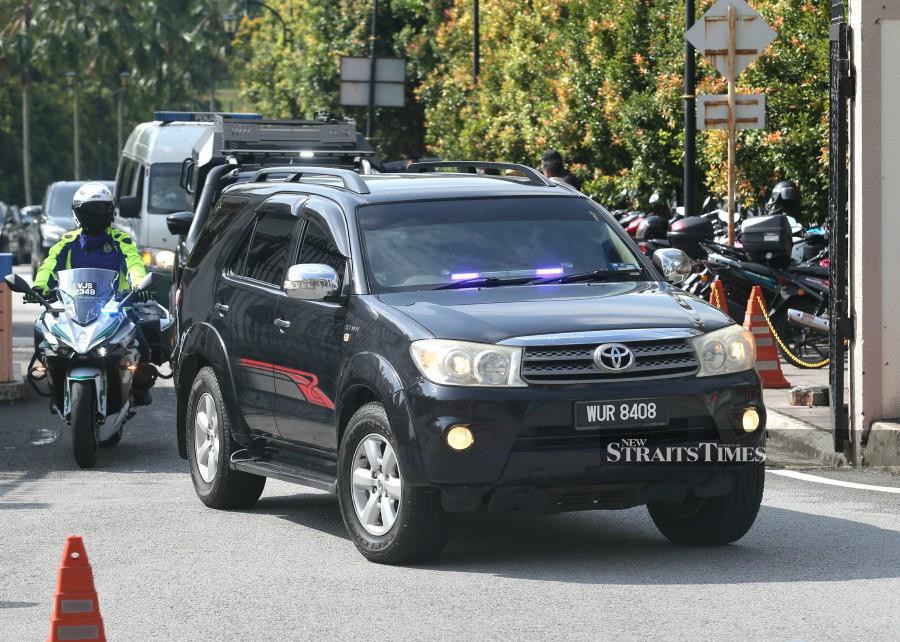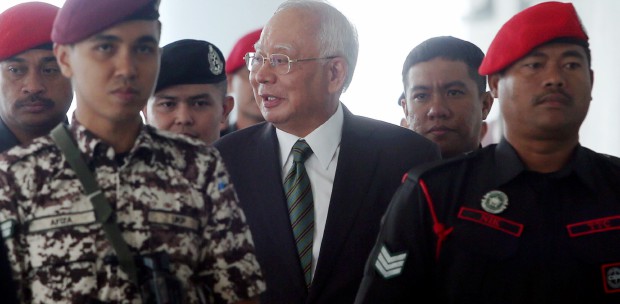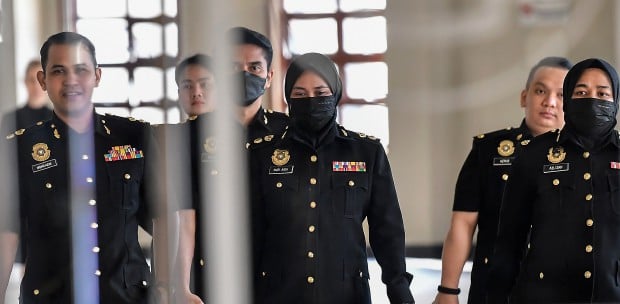KUALA LUMPUR: Datuk Seri Najib Razak's right to a fair trial might be violated if the court allows the admission of his private conversation with a Saudi monarch in the 1Malaysia Development Bhd (1MDB) trial, the High Court heard today.
Najib's lead defence counsel Tan Sri Muhammad Shafee Abdullah said the recording, which the prosecution wanted to admit, might be tampered with false information.
"Applying the ratio to our case, if the compliance with the law governing the admissibility of the documentary evidence is not complied with, the accused is placed at a disadvantage because the evidence will not be excluded.
"Even worse, there is no mode for the accused to raise any objection in relation to its non-compliance because of the purported wordings and interpretation to Section 41(A) of the Malaysian Anti-Corruption Commission (MACC) Act 2009.
"The prosecution had abused the court process by not including the intercepted communication under Section 43 of the MACC Act, but instead, used a back door by forcing the court to accept 'document evidence' under Section 41(A) of the MACC Act," he said.
Shafee reiterated that it was unconstitutional to accept the audio recording under Section 41(A) of the MACC Act as it does not use the provisions of the Evidence Act 1950.
Section 41(A) of the MACC Act states that any document or a copy of any document obtained by the MACC under this act shall be admissible in evidence in any proceedings under this act, notwithstanding anything to the contrary in any other written law.
The prosecution yesterday argued that it will be difficult for the prosecution to bring corrupt individuals to justice if they need to stick to the rules governing the Evidence Act.
Deputy public prosecutor Datuk Seri Gopal Sri Ram said requiring the prosecution to prove each and every document in accordance with the strict requirements of the Evidence Act could lead to the escape of many graft criminals.
He said that was why the government introduced Section 41(A) of the MACC Act by way of amendments to avoid this consequence.
Sri Ram said the recording and transcript were admissible under Section 41A of the MACC Act because the closing words of that section exclude the method or mode of proof prescribed by the provisions under Chapter 5 of the Evidence Act.
Najib, 69, is facing four charges of using his position to get bribes totalling RM2.3 billion from 1MDB funds and 21 charges of money laundering.
The trial before High Court judge Datuk Collin Lawrence Sequerah continues.






